When Spring Plains grazier Graham Cameron got an early morning call from the police last Wednesday he knew something was awry.
“My first thought was it was one of the kids, I was relieved when it was a rescue,” said Mr Cameron.
“I got a phone call from a Tamworth policeman at four o’clock asking if I’d do a flood rescue for them.”
A father and son travelling from Perth to Brisbane had somehow found themselves trapped in floodwaters on the Spring Plains Road and were stuck on the roof of their ute trying to stay safe as the water kept rising and snakes slithered by.
“The mozzies were eating them alive, the bugs were all over them and there were snakes swimming past.
“They said they saw at least six snakes go past while they were there,” said Mr Cameron.
The police called the right house for help because despite the fact Mr Cameron isn’t part of an official rescue service, he is the type of community person who would give you the shirt off his back.
Both Mr Cameron and his wife Wendy are always willing to lend a hand.
However, it would’ve been understandable if they’d said ‘no’ to this rescue mission.
“Well, I’d just hope that if I was in a situation then someone would come and do it for me,” said Mr Cameron.
After Mr Cameron took the police call, he got in his tractor with a front-end loader and started the search, in the dark, for the lost travellers who were apparently not far from the Thalaba Creek on the Spring Plains Road.
“When I went over the top of our floodbank I realised that the water had come up a hell of a long way,” said Mr Cameron.
“I couldn’t believe the water when I got down there because I’d only been down there the day before on a quad runner, and it was no problem to get there on a quad then.
“There was a bit of water, but nothing like that.
“I got over our ramp and headed down the road, this is all at night time too so I had lights on and because of all the water you can’t see the road anywhere and after I’d left the floodbank everything was underwater.
“I knew to line up with the fence lines and to stay in the middle, but the water was just getting deeper,” said Mr Cameron who was born and bred on the Plains and knows the country like the back of his hands.
“After I got around to ‘Hazel Park’ and started heading towards the bridge, the water just slowly got deeper and deeper and deeper.
“It eventually got over the front of the wheels of the tractor and the fan was hitting the water and I still couldn’t find a ute, I thought ‘blimey – they’ve got the wrong spot’.
“But I’ve got a fairly powerful torch and I pulled it out and shone it down the road.
“I could just see something white, way down in the distance and an arm waving,” said Mr Cameron.
“So I poked up a bit further and I got within about 100 metres of them and I suddenly thought: ‘will I or won’t I? It’s getting fairly deep, I don’t want to drown my tractor here’.”
Mr Cameron said the water depth was about 1.3 metres.
“The water was not far from coming in the cab (of the tractor).”
“There was a fair current flowing too, you wouldn’t have wanted to try and walk through it – you’d be swept away.
“If it was any deeper I would’ve had to go back and get another tractor, and then they would’ve seen the lights receding and they wouldn’t have been very happy.”
Mr Cameron persevered, carefully making his way towards the father and son who he said were situated ‘about 300 metres short of the Thalaba creek bridge on the southern side.’
“It was lucky they didn’t make it over the bridge because they would’ve got swept away for sure, it was really deep over the other side.
“So I slowly poked up a little bit further towards them and I lowered the bucket (at the front of the tractor) down to the back of their ute, they had a Ford Ranger with a tub on the back, and they were sitting on the roof and all the tub was full of water.
“When I lowered the bucket down, they jumped in and threw a couple of the bags in too.
“We had to reverse all the way back up to the Hazel Park turn-off (about one kilometre) to turn around because I wasn’t going to go in the table drain to turn around.”
Mr Cameron said the travellers ‘were over the moon’ to be rescued finally after being left high and dry for at least a few hours.
“Oh, they were very thankful, they couldn’t stop thanking me enough,” Mr Cameron said.
He said the father and son were on their way to Brisbane for their daughter and sister’s wedding.
“We brought them back here and we gave them a feed.
“I then took them back to town and they organised a flight out of Narrabri to get to Brisbane in time for the wedding.”
No doubt the travellers had a good story to tell at the wedding, but Mr Cameron agreed that it was a timely reminder for people to follow warning signs.
“You can hear it every 10 minutes: ‘don’t drive into flood water’, but I guess people just don’t listen.
“They got between Wee Waa and Narrabri to the Myall Vale turn off there and Google Maps apparently told them that it would be 16 minutes quicker if they went the Spring Plains Road,” said Mr Cameron, perhaps a warning to not always rely on Google maps.
This flood rescue might’ve had a happy ending, but while Mr Cameron was helping the lost travellers he also had to deal with water levels on his property ‘Aberfeldie’ and the consequences for his stock.
“We had 161 millimetres over two days (last) Monday and Tuesday,” said Mr Cameron.
“It’s the second biggest flood that we’ve ever had here on record since 1880, so 2012 was the biggest by a long way but this is the second biggest.
“We were having a beautiful year so far, fantastic season from January last year.
“It’s been a fantastic 12 months but when the feed gets this big and everything is looking fantastic usually something comes along and wipes it out.
“It was looking like the mice and the grasshoppers were going to do.”
Mr Cameron said they’ve sadly lost at least 40 sheep, but thanked his kind neighbours for helping to get stock to safe ground.
“When I got back from town after dropping the father and son off, I found some of my dry sheep had not quite made it up onto a floodbank where I was hoping they’d be,” he said.
“Wendy and I went down and got them out, about 180 to 190 of them.
“And there were probably 40 of those that died, they just couldn’t handle all the wet weather and water around them.
“Now all the sheep are inside the levee, we’ve just got to be careful that we don’t get a whole heap of lamb sickness.
“We are just so lucky that they were in good condition because if they’d been drought-stricken or not in good condition before – we would have been in big strife.
“They would’ve just been bogged and died where they were.
“So we’ll just keep an eye on them and make sure they stay healthy.”


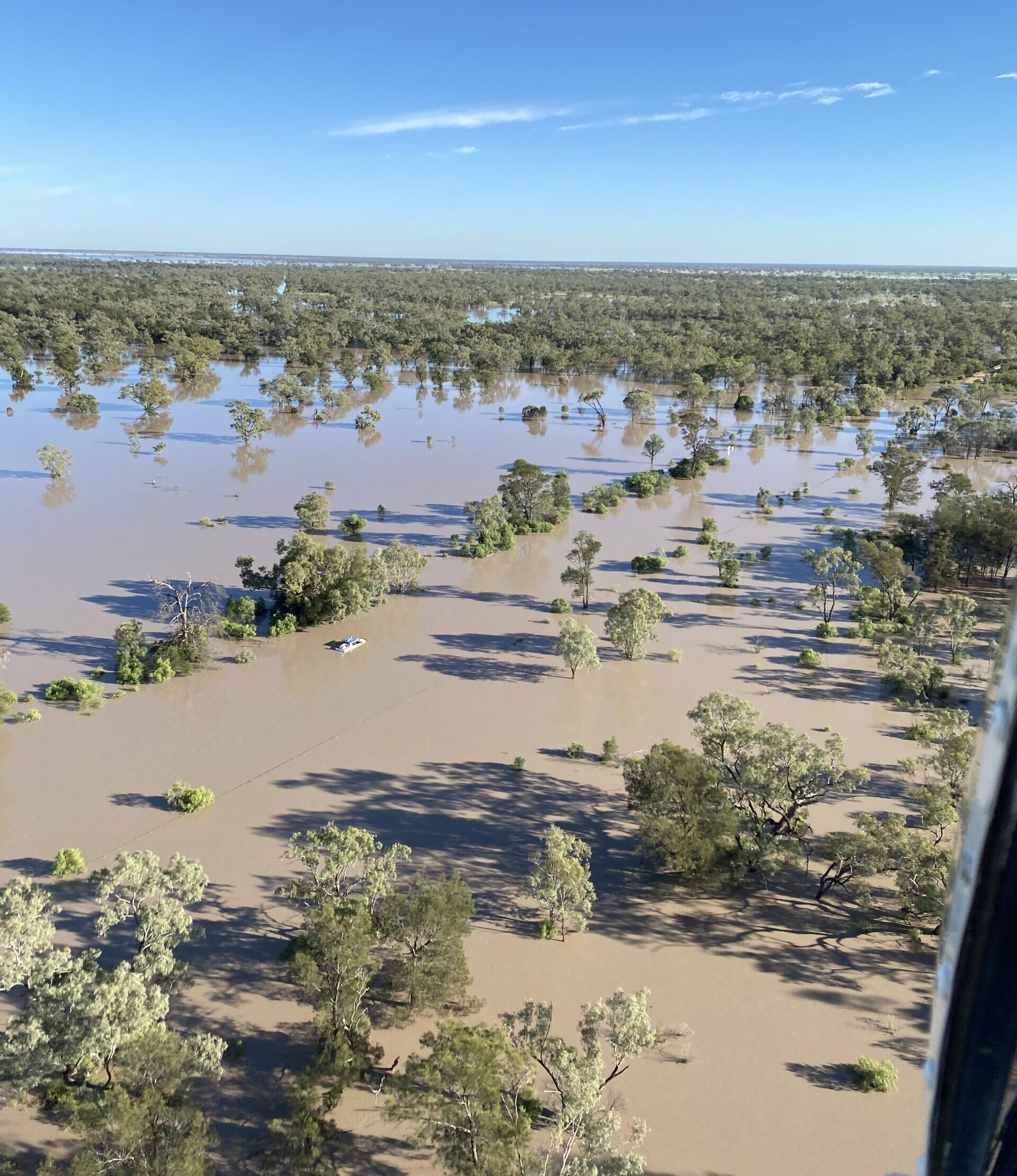


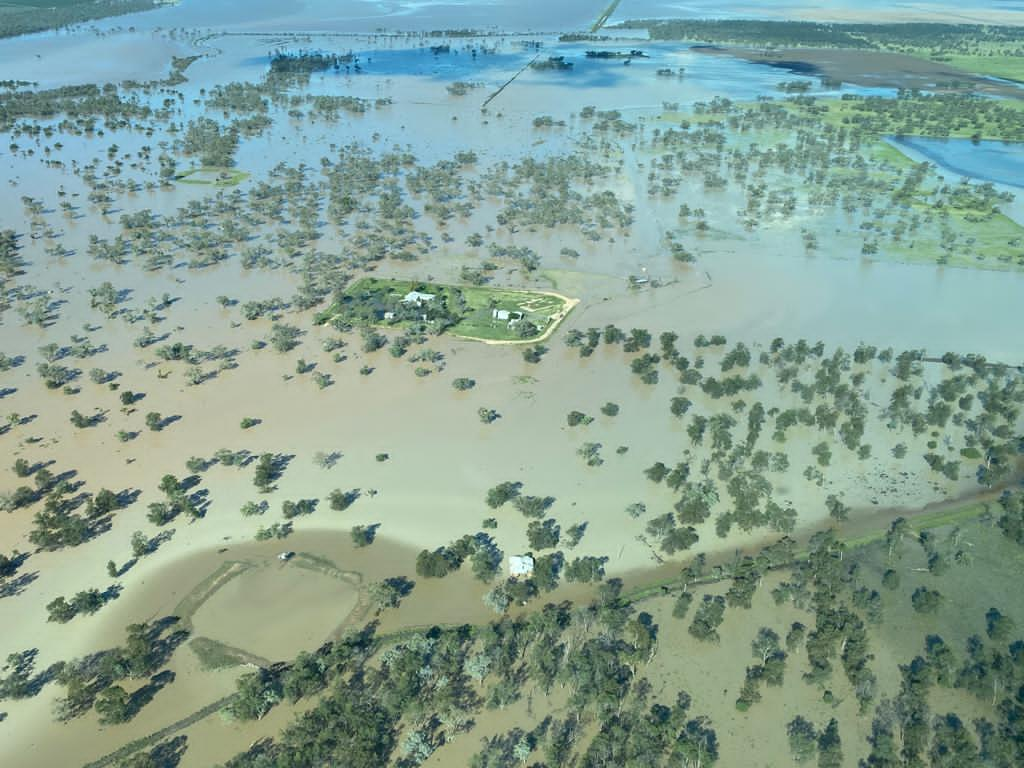
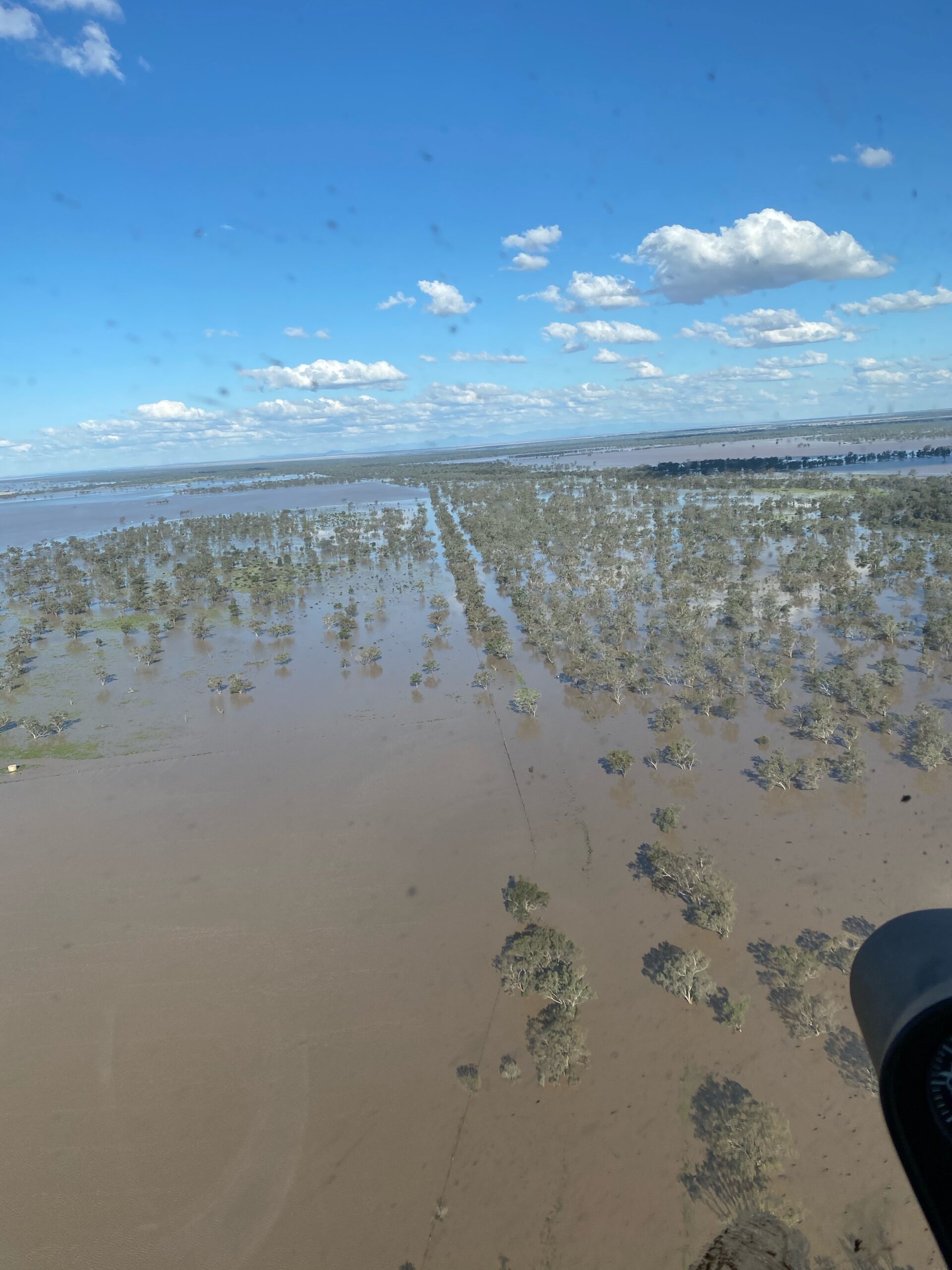
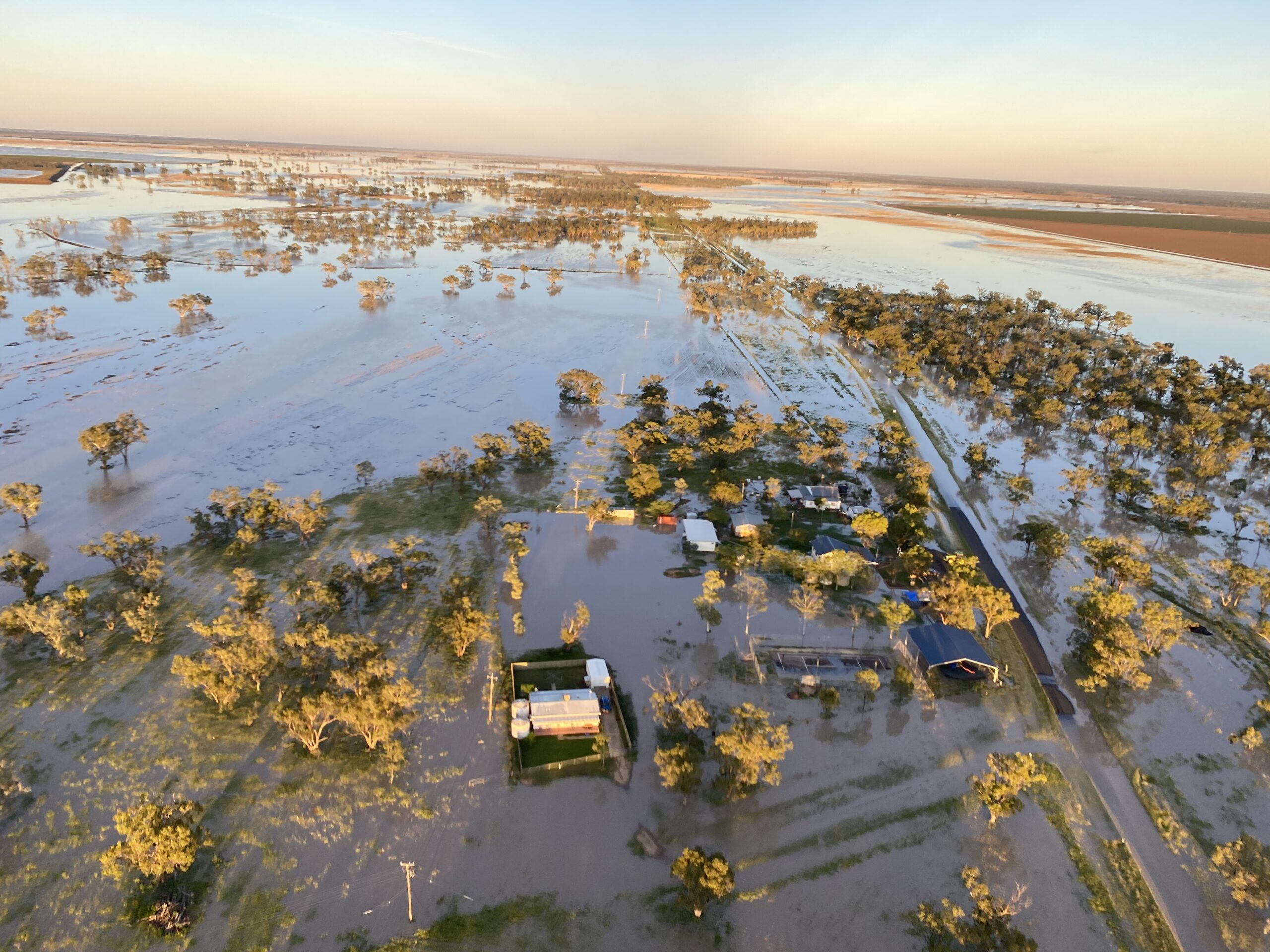
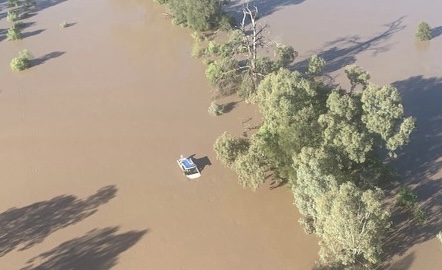
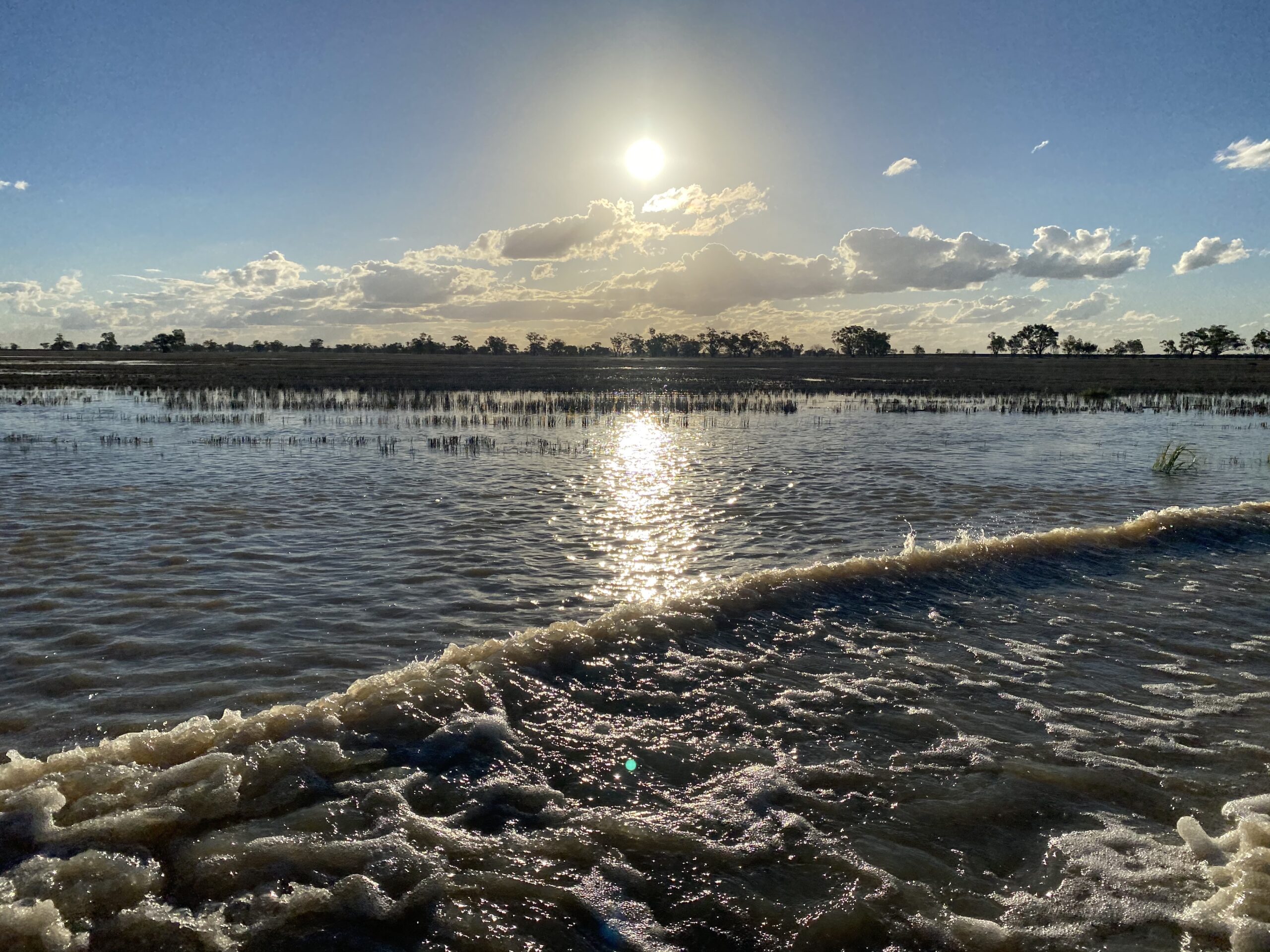
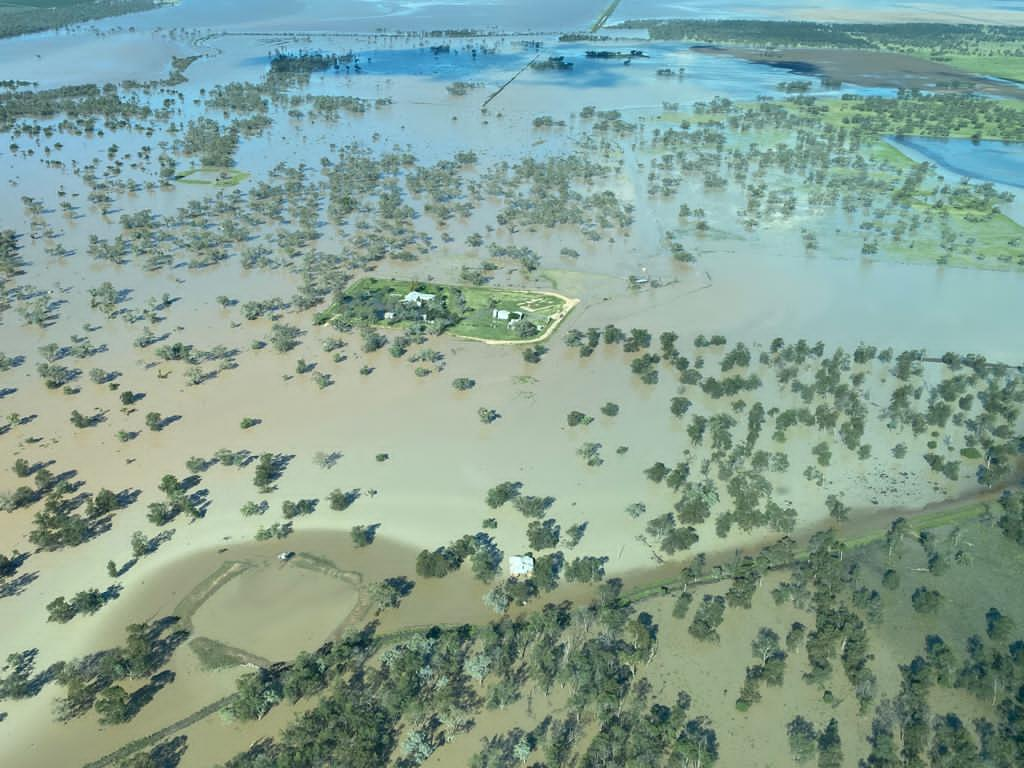




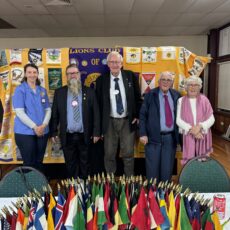


Wasn’t there another case years ago with Google maps getting people trapped in flooding by taking them off the highway? Please report this as a warning.